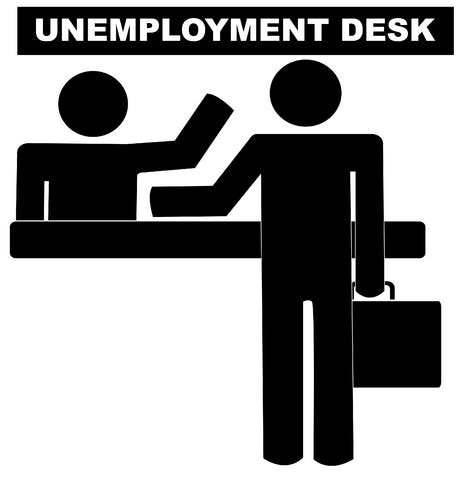Maybe mixed news is good news, at least in the long term.
On the heels of the US Department of Labor’s latest numbers which showed seasonally adjusted initial unemployment claims increased 35,000 to 445,000 (but continuing claims were down), Federal Chairman Ben Bernanke said that unemployment will improve, just not as quickly as we’d like. As Reuters reports:
“We see the economy strengthening. It has looked better in the last few months. We think a 3 to 4 percent-type of growth number for 2011 seems reasonable,” Bernanke said at an event sponsored by the Federal Deposit Insurance Corporation.
“That’s not going to reduce unemployment at the pace we’d like it to, but certainly it would be good to see the economy growing and that means more sales, more business,” he added.
Bernanke’s forecast suggests prospects have improved somewhat in policy makers’ eyes since November, when the Fed anticipated the economy would expand in a range of 3 percent to 3.6 percent.
Guarded optimism may be the right words to describe the Chairman’s remarks today.
Slowly improving slowly
Of course, myself and many of my colleagues have been quietly rooting for improvement in the overall economic picture. And as other economic indicators have improved, I’ve been looking for indications that it is going to start impacting the unemployment picture.
Even minor things like the number of voluntary resignations eclipsing the number of layoffs set off a mini-celebration in the office of yours truly.
Seeing that companies have more cash on hand, increased merger and acquisition activity, increased business lending and stock prices that aren’t in the dumps give some semblance of hope to those who have been looking for months stretching into years.
The hard reality: unemployment will linger
While we can’t begrudge any improvement, what continues to frustrate job seekers and HR folks alike is that employment isn’t improving at the rate that they see everything else moving. And of course, these lingering issues have numerous side effects besides just more on the state unemployment rolls. Foreclosure rates are expected to rise and unemployment is one of the primary culprits as mentioned in Bloomberg:
“We will peak in foreclosures and probably bottom out in pricing, and that’s what we need to do in order to begin the recovery,” Rick Sharga, RealtyTrac’s senior vice president, said in an interview at Bloomberg headquarters in New York. “But it’s probably not going to feel good in the process.”
Foreclosures have weighed down U.S. housing prices as the nation’s unemployment rate is stuck at more than 9 percent. Home values may rise 0.6 percent for the year, the first annual jump since 2006, according to Fannie Mae, the largest U.S. mortgage buyer. They have fallen as much as 33 percent since peaking in 2006, based on the S&P/Case-Shiller Index of 20 cities.
That will continue to put strain on all financial markets until foreclosure rates start improving.
Effects will take years to erase
The number of people unemployed for six months or more makes up more than 44 percent of all unemployed. And as The Wall Street Journal points out, this is as astronomical number. In the last recession, the number of long term unemployed peaked at 2 million. Now it is at a bit over 6 million.
Not only does that create great financial strain, but it also may be indicative of a subtle shift in the workplace that was sped up in part because of the recession. The same skills to be successful 10-20 years ago won’t necessarily help you today, and even if there are jobs available in some of these areas, you can bet that the supply will outstrip demand.
It’s looking less like we’ll march back that fast as even with economy improving. Businesses may be looking for skill sets that don’t exist or are in high demand, while those on long term unemployment hold skill sets that few businesses are looking for.
All of that seems to indicate that the road to full employment is going to be a lot more difficult than just finding companies who want to hire.
